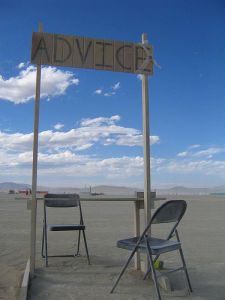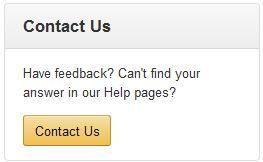Eric Dontigney's Blog, page 6
December 30, 2014
My Nonovels Experiment

photo credit: jdlasica via photopin cc
So, I’m always looking for new outlets for my writing, and I recently ran across a site called Nonovels. It’s an interesting little site, made more interesting to me because it’s trying to do some really cool things. The guiding idea behind the site is fairly simple. A lot of people who won’t read novels, or simply don’t have the time to read novels, will read short stories. However, no one wants to read crappy short stories. Nonovels aims to provide solutions to both issues, while taking advantage of the explosion in mobile technologies.
A big part of the site is a set of training courses, most of them free, that center around short story best practices. The courses are primarily designed for beginning writers, but they do offer very sound advice. It’s the kind of advice that most fiction writers, me included, learn through extended, painful, trial-and-error. For example, once piece of advice they offer is to limit the number of settings you employ in a short story. This might be obvious to seasoned writers, but not so much for novice writers.
To be fair, like most writing rules, that one isn’t set in stone. Some writers can and do violate this piece of advice. I’ve done it. It is possible to sketch an authentic setting with a few well-written lines, but it’s not easy. As a guide for early forays into short fiction, though, that advice is invaluable. The other advice they offer on characterization, voice, point of view and so on follows the same essential principle: don’t overcomplicate things.
The other thing they offer, which is the selling point for me, is dealing with the entire formatting and submission process to turn the short stories into Kindle-ready products on Amazon. They take a percentage off the top of the royalties for this service and, to me, it’s worth it. Yes, I agree, the dedicated writer can do that formatting and submitting and cover creation. It is, however, time consuming and takes me away from the writing.
The base price they set on Amazon for Nonovels short stories is $2.99. I blinked at that, right at first, until I considered everything they’re doing in terms of managing submissions and offering training. Plus, it’s still a heck of a lot cheaper than any Kindle-ready fiction from one of the big publishing houses. What you’re really paying for is helping to develop a cohort of writers that will, with any luck, produce work that transcends the current crop of Fifty Shades of Terrible Writing and that Twilight horror.
Like most writers, I have ideas that don’t nest comfortably in a pigeonhole. That is great from a creative standpoint. Unfortunately, those stories generally prove difficult, if not impossible, to place in publications. So, over the next few months, Nonovels is going to be the place where those stories go to live.
I’ve got one short story live already. It’s a shiny, new Contingency Jones story called, “An Afternoon’s Work,” and you can get it over on Amazon. For Prime subscribers, you can borrow it free. I’m also working on a follow-up Contingency Jones story that I’m hoping to get finished and live sometime in the next few weeks, so keep your eyes open.
I’ll keep you all updated as this experiment moves forward and the Nonovels site develops and expands.
Are you on Nonovels? Got some thoughts on this experiment or the Nonovels site? Leave a comment and let me know!
December 26, 2014
Eric’s Year End Report – 2014

photo credit: the past tends to disappear via photopin cc
So, it’s been an interesting year. I set some goals earlier this year. Some I achieved, in part or in full, and some I failed to achieve. And one came out of the blue and I more or less made it happen. So, here’s the report.
I set a goal to get the new Branch novel out this year and I did it. I did it by the skin of my teeth, but I did it. Speaking of which, you should go get your copy of Rises: A Samuel Branch Novel. It’s available through your friendly, neighborhood Amazon.com in Kindle and print editions. It will be released for Nook, as well as most other e-readers, early next year.
I set a goal of getting three short stories published in magazines this year. I fell a bit short. I placed two short stories with Stupefying Stories, which is a terrific publication that you should show some love. One of my stories appeared in the August 2014 issue, which you can get here. The second story will, most likely, appear sometime early this coming year. Still, I’ll take my two placed short stories, be happy, and aim to place twice that many next year.
I had also planned on starting a podcast. I even recorded a preliminary episode that generated some positive response from the alpha listeners I shared it with. It just never quite came together. Some of it was a time issue. There are never quite enough hours in a week. Some of it was simple concern that, however good my intentions, I just wouldn’t be able to come up with enough interesting material to sustain the podcast over the long haul. The idea isn’t dead, but I’m letting it percolate a bit more before I either move forward or scrap heap it. I’ll let everyone know where I come down on that.
Another goal I had was to put together a limited run web-series. The plan was 4 episodes running 3-5 minutes each. This one really did boil down to me not having enough time commit to the project, paired up with my uncertainty that I could get the right resources in place, at the right times, to make it happen. I still want to do the series and, if Clotho, Lechesis and Atropos see fit to consent, I’d like to be announcing that the first episode is going live sometime in April. Pester me about this folks. Shame is a powerful motivator.
A goal I hadn’t set for myself, but ultimately wound up delivering on was a pretty substantive renovation of an old house. I tore out floors clear down to the joists and, in some cases, those came out too. I installed new underlayments, sanded down hardwood, put down new finish, and even helped to cut and install some tile. It was a pretty massive project that stretched out for months, but it’s all but complete now and I’m pretty proud of what I did there.
Overall, looking back, I can’t complain about this past year. There were some pie in the sky things I either didn’t get a chance to do (visit Crater Lake), or would have liked to have done but it wasn’t realistic (finish a second novel in addition to the new Branch novel).
Still, I did learn how inefficient I can be with my time. It’s a forgivable sin, I think. I’m certainly not alone in it. In retrospect, I can see how those inefficiencies contributed to my failing to reach certain goals (podcast, web series). So, right at the top of my list for next year’s goals is improving my time/self management. I’m going to take my cue from Lean Thinking and aim make persistent, incremental improvements. Some will be easy, some will be hard, but even small improvements often lead to big results. As I formulate some new goals for the coming year, I’ll keep you appraised.
December 24, 2014
Today Only, Get The Sam Branch Christmas Special Free

photo credit: Joseph Jayanth via photopin cc
Because it’s Christmas Eve and I’m feeling jolly, today you can get your free e-copy of The Sam Branch Christmas Special. Right here! But better grab it quick, because after today, they come down!
For Kindle: Get it HERE
For Nook and other .EPUB friendly readers: Get it HERE
Happy Holidays everyone!
Update: Free day has come and gone. Hope you got your copy while it was free! Merry Christmas everybody!
December 4, 2014
Dispelling the Writer’s Block Myth

photo credit: Jonno Witts via photopin cc
One of the recurring subjects in writing is the dreaded writer’s block. As I understand it, for most people, writer’s block seems to be the inability to get the work moving. The blank page or screen sits there, mocking you, until it becomes so oppressive that you walk away. Other versions, which I actually don’t think are writer’s block, include not being able to figure out where one specific story goes next or not being able to get one of the multiple ideas you do have off the ground. In my experience, writer’s block is a myth.
I’ve had moments where I couldn’t figure out what happens next in a book. I’ve had stories that never seemed to go anywhere. Plenty of false starts, unfinished novels, and bad writing in my past, but I have never experienced, in close to 15 years of amateur and professional writing, a flat out inability to write.
What I have experienced, and suspect most people mistake as writer’s block, is a lack of passion for what I’m writing. I either don’t care what happens next, wasn’t interested in the topic in first place (think informational articles on some very dry topic), or am simply having an off day.
It was never that I couldn’t write. I just couldn’t write in that fiery heat that early 20th century writer’s waxed rhapsodic about. The muse wasn’t speaking. Or, as Stephen King would put it, the guys in the basement were taking a day off. None of which impaired my basic abilities to construct serviceable sentences, reason my way through plot problems, or deliver finished work. I just had to MAKE MYSELF DO IT. You know, like going to work when you’re hung over, or tired, or just don’t feel like it.
That, ladies and gentlemen, is what separates the serious writers from the dabblers. You don’t have writer’s block. What you have is a passion deficit. You can still write. You just need to accept that it’s going to feel like work that day, maybe the next day, and maybe for weeks at a time. Here’s the thing, though, the writing will get done.
More importantly, because your essential skill set hasn’t changed, it will be about as good as everything else you write. It’s just harder to do. So, stop fretting about writer’s block, stop waiting for the muse to fill you with creative fire, and start putting words on the page. Do it today.
October 17, 2014
5 Tips for the Aspiring Writer (or any other creative type)

photo credit: laughlin via photopin cc
As someone who’s been at this making a living at a creative endeavor thing for a while, I feel the occasional compulsion to offer “sage wisdom” from my time in the trenches. Like all advice, you can and should take or leave whatever parts of this advice suit you.
What you’re doing matters. With that said, it may not matter as much as you’d like or to the people you want it to matter to. Being creative and putting it out there for the world is the definition of leading by example. Even if your book or art or music isn’t changing the lives of millions of people, if you’ve ever gotten a positive review on Amazon, sold a painting or received some likes on that YouTube video where you did a cover of Pearl Jam’s “Jeremy” (and kudos to you if you did cover that song, you madman) you reached someone. You jolted them out of their grind enough for them to take the time to say something or do something. That is huge! Don’t underestimate it.
You should expect poverty. Being wildly successful and making (insert your fantasy sum of money here) is unlikely. There is no accounting for why some things sync with the cultural or international zeitgeist and some things don’t. By all rational measures, The Shawshank Redemption should have been the highest grossing, most Oscar-winning movie of the last 20 years. Every movie with the name “Twilight” attached to it should have made exactly $0 and gotten relentless trashed by anyone with the mental development of the average 3rd Yet, Shawshank bombed at the box office and was ruthlessly snubbed by the Academy. Twilight was, as of late 2013, closing in on $5.8 billion in total revenue and still being defended by fans with a cult-like zeal. Maybe that’ll be you, but don’t bank on it.
You can make a living with your creative endeavors. It is possible to achieve that goal. It isn’t easy. It isn’t always reliable. It is, however, entirely possibly to make enough to live on from year to year. Tens of thousands of people are doing it right now.
You’re not as good as you believe you are. I know, I know, that sounds mean and cruel, but it’s almost always true. It’s the rare bird whose actual skills are in line with their perception of their skills. In the early days, you’re almost never as good as you imagine. Later…much, much later…the asymmetry sometimes goes the other way, but assume your work is about 50-75% worse than you think.
Persistence pays off. Creative fields are a nightmare to break into because the margins are wafer thin for most of the places that buy that kind of work. They aren’t looking to bring along a promising talent. They’re looking to slap recognizable names onto the cover of the magazine or the front of the theater because that brings in paying customers. If you give things some time and you’ve got any real talent, you will start to book gigs, get clients, sell stories and see your work out in the world.
There you have it. Five tips for aspiring creative types. Did I miss something you think should be on here? Think I’ve got something on here that shouldn’t be? Got a good recipe for Tiramisu? Drop a comment below and let me hear about it.
September 18, 2014
Fear of Failure

photo credit: zetson via photopin cc
Here’s a universal truth for you: everyone fears failure. Here’s another universal truth for you: failure is inevitable. I believe those two truths are responsible for more people not pursuing their dreams, writing or otherwise, than almost anything else.
We fear failure, rightly, because it’s emotionally difficult. Those sloppy, ill-considered, early attempts at something new don’t seem to measure up. We look at our heroes, compare our work to theirs and are struck by shame or inadequacy. We just aren’t good enough. We’ll never be that good. What the hell were we thinking even trying this new thing?
That negative self-talk leads to one inevitable conclusion. Go back to what you know. Go back to what you’re good at and never try something new again.
Of course, there is also the inevitability of failure. We go into most new things cognizant that we probably won’t succeed the first time or the second or probably even the ninth or tenth times we try. That inevitability paralyzes us because we also know, going in, that we’re going to feel like crap when we do inevitably fail.
The thing about failure is that it’s largely a matter of perspective. The first novel I tried to write…in point of fact, the first three novels I tried to write were awful. I’m talking awful on an epic scale. Aside from a few concept level things that I cannibalized for other works, there was almost nothing redeeming about those books. By my current standards, those novels were failures. The operative phrase in that last sentence is “by my current standards.”
At the time, I was writing as well as I could. From my perspective, then, those abandoned attempts at novel writing were not failures. The words I put on the page were trite, contrived, pretentious, clichéd and derivative words, but no more so than any other novice writer cutting his or her teeth. They were not failures, but learning experiences. Incidentally, if you can avoid being self-critical, all failures are learning experiences in the long run.
Since I took my first swing at novel writing, I’ve had a lot of practice at writing. If I had to take guess, I’d say a couple million words worth of practice. Practice taught me a lot. Study of the craft hasn’t hurt either. I’ve probably read tens of millions of words in the intervening years, which was a learning exercise in itself, as well as reading some excellent and not-so-excellent guides on craft. All of that has given me a very different view of what comprises good writing.
Here’s another truth, the sting of failure fades. It doesn’t necessarily fade quickly, but it does fade. The sting of regret, on the other hand, lasts for a lifetime.
September 10, 2014
Link Roundup – Tech and Software

photo credit: EssjayNZ via photopin cc
As a writer in the age of the Internet, you have two choices. You can either hire/beg someone knowledgeable to handle all of your technical/software/website issues – which is a perfectly valid and even wise course of action – or you can get tech savvy. Of course, as a writer, the lion’s share of your time is probably spent on writing and reading, not picking apart the pros and cons of the latest WordPress update or theme. So, here are some links that I’ve found helpful in navigating my way through the brave new world of technology and software.
WordPress Hacks –
The info in this one is getting a touch dated, but I found it invaluable for getting started when I moved my blog from one domain to another about a year ago.
SiteGround: cPanel Tutorial
If you’re running your own website, there is a good chance you’ve been confronted with cPanel. It’s one of the major interfaces that hosting providers use to simplify website management for customers. cPanel can be daunting at first glance, but the tutorials found at SiteGround walk you through most of the essential functions.
Sometimes your website does weird things and wish you knew how to fix it. Well, that’s what Codecademy is all about. It offers free training on HTML, CSS, Javascript, jQuery, Python, Ruby and PHP. Odds are good that whatever problem you’re dealing with is rooted in one of those languages. Even if you aren’t interested in becoming an expert programmer, understanding the basics of HTML and CSS will let you deal a lot of the issues you’re likely to bump up against on your website. Plus, the courses are built to cater to the rank novice.
Copyscape – Plagiarism Checker
Even the most honest writer can accidentally trip over the line into plagiarism and never even know it. The reality is that, with so much written content in the world, it’s almost inevitable that you’ll end up with sufficiently similar phraseology to make a left turn into the land of plagiarism. Copyscape is the go-to plagiarism checker for pretty much anyone buying content from freelance writers with the intention of publishing it online. It is a paid service, but remarkably cost effective at 5 cents per scan. That nickel is some of the cheapest peace of mind I’ve ever bought.
When it’s hardcore, do or die, you must get the words on the page this instant and keep doing it until you’re done time, there is no substitute for Write or Die. When set to “consequence mode,” this little bit of software will literally start deleting your words, which means you have to get it down on the page (or screen in this case) without stopping for pesky typos or to polish that awkward sentence. This is not for the faint of heart. If you’re ready to step it up to kamikaze mode, though, it’s absolutely worth the $20.
There you have it, five of the most useful tech and software resources I’ve run across in my years as a writer.
Is there a tech or software resource you’ve found especially helpful? Leave a comment below and tell us about it!
August 30, 2014
Good News and Bad News

photo credit: Nessmuk51 via photopin cc
Good News: It’s Labor Day weekend! I hope everyone has a great weekend, spends some time with friends or family, and barbeques something.
Bad News: SyFy has cancelled The Wil Wheaton Project. I can’t say that this has come as any kind of shock to me. After all, this is the same network that decided to air “professional” wresting on a channel ostensibly devoted to science fiction. A show that catered exclusively to nerd culture – you know, the people who watch science fiction – was on life support from Day 1. Still, it was fun while it lasted and I’m sad to see it go.
August 19, 2014
Short Story Publication and Other Updates

photo credit: SpreadTheMagic via photopin cc
Earlier this year, I mentioned that I’d set a goal to get three short stories published this year. I’m now one step closer to that goal. My short story, “Memory Makes Liars of Us All,” was just published in the August 2014 issue of Stupefying Stories. The issue is available over on Amazon, for Kindle, for $1.99. I also hear tell there may be a print version in the works, but I don’t have details on that. Either way, there are some great stories in that issue and you won’t want to miss it!
Getting that story picked up was especially meaningful for me. Of all the short stories I’ve written over the years, it’s one of my personal favorites. It took a long time to gestate. I wrote the first, much less sophisticated, much less polished version of that story years ago. It’s gone through a lot of drafts since that first effort. Along the way it’s lost some weight, about 3000 words worth. The original ending is gone, as is the original beginning. Also missing are so very many awkward sentences and stillborn ideas. It’s not a perfect story, no story ever is, but I’m very proud of it. I hope you enjoy it.
I also had an opinion piece that I wrote about America’s uneven response to the issue of big data collection picked up over at Global Comment. It isn’t just the NSA that engages in big data collection. We should all think hard about who we trust with our information. I’m quite proud of that piece as well and hope you’ll take a few minutes to read it.
On the Sam Branch front, my revised draft of Rises is out being looked over by my woefully underpaid, but supremely talented, volunteer editor. I’m letting Branch take a nap in my head while that happens, but the new novel is coming.
I’ve got some projects in various stages of doneness. There is a freshly minted short story in a first draft form, along with another that’s about halfway there. So, with any luck, I’ll be able to find homes for one of those. I’m still playing around with a couple of the non-Branch novel ideas I have, but I imagine that work will start on one of those very soon. I’ve also got a couple of other opinion/essay type things that I’m testing out in the uncertain world of submissions. If I get anywhere with those, I’ll let you know. Promise!
August 2, 2014
8 Steps for Getting Amazon to Send Customers an eBook Update Email

photo credit: Andrew Mason via photopin cc
If you’re like me, you occasionally revisit your kindle content. You probably find errors that need to be repaired or you want to add content to the eBook, such as preview chapters for a new book. While the process to for making changes to the content is pretty straightforward, getting Amazon to send out an update email is less straightforward.
Amazon offers some instructions for it, but they aren’t exactly clear as glass. To begin with, while the update to the content is more or less or less automatic (assuming no critical errors in the file), that’s all that happens. New customers get the updated version of the file, but anyone who bought it before the update is still wandering around with the old version.
To get Amazon to send out an update, you need to inform them that you’ve made the change. This isn’t straightforward either. Here’s the steps you’ll need to take to make this happen.
Go the instruction page
Scroll down to the bottom of that page where you’ll see a “Contact Us” button to the left.
That will take you to a menu that looks like this:
(Unfortunately, there is no update email option, so you have to gamble a bit here.)
I recommend selecting the Publish Your Book option and selecting the Corrections tab. It should look something like this:
Fill out the subject line with something along these lines: “Requesting Customer Update Email”
Enter the details in the box below
Be sure to include salient information, including the title or ASIN number and the major changes you made to the book
Send
It’s important to note that this process is not a guarantee. Amazon determines whether or not the changes you made constitute a “major” or “minor” change. Major changes result in a customer update email. Minor changes do not.
Assuming Amazon does send out an email, it can serve as an excellent way to draw reader attention back to you and your work. You might even pick up some sales for your other work.






